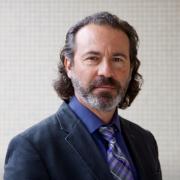Research Updates
Updated January 2025
In this multi-methods and multi-aim study, we were able to demonstrate that a youth-generated, arts-based, online vaccine campaign was at least as effective in advancing vaccine goals as the gold standard but was superior in terms of viewer engagement and identification, particularly for Latinx youth. We also were able to successfully engage youth of color (YOC) in a process to create a new online campaign to promote emotional recovery from the COVID-19 pandemic and derive/generate meaningful themes that can inform public health efforts. Finally, we found that we could disseminate this new campaign content online with a two to three greater degree of engagement when funds were dedicated to supporting online influencers and aligned community-based organizations. In aggregate, these findings suggest that engaging arts organizations as partners in public health communication efforts can be an effective and novel means to enable marginalized populations to affirmatively respond to current and future public health crises.
Project Updates
- Project website: The Bigger Picture
Proposed Research and Background
This project studies pandemic recovery for teenagers and pandemic readiness for future emergencies. We will bring together YOC artists and health professionals to develop and evaluate culturally affirming messages. We also are also studying how to strengthen the public health messages we receive by including artistic storytelling as a strategy. COVID-19 has taken a toll on the mental health of many teenagers. Many YOC are struggling to recover from loneliness; loss of loved ones; academic problems; money issues; and discrimination. Finding new strategies to help everyone recover is a public health priority.
In this project, we use a proven model that supports and spreads the voices of YOC spoken-word artists who "change the conversation" about public health. We will learn from YOC artists what recovery means to them and their friends and will support these artists to create a new campaign from their art. Results will help public health and youth programs help YOC recover. While California's COVID-19 response was strong, the spread of lies and false information prevented many from staying healthy. Also, most messages did not come from diverse messengers, which got in the way of information flow for people of color.
Leading researchers have taken away lessons from the pandemic. At the top of their list is the need to "build trust through networks based on partnerships between community organizations and scientists" and "invest in science to develop ways to address crisis management and deliver public health messages." This requires that we study how public health programs communicate, what we communicate, and how we can spread the voices of trusted messengers.
We are conducting an internet experiment to figure out how much better arts-based approaches to health communication are compared to usual approaches. We also will study whether we can do better at spreading these messages. This research will provide information to improve our response to future emergencies.
Collaborators
- UC Merced
- UC Santa Barbara
- UC Berkeley
- Youth Speaks, Oakland



